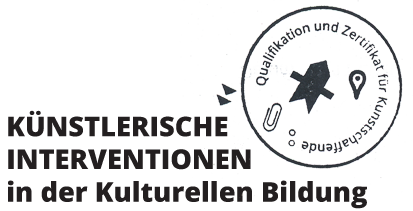

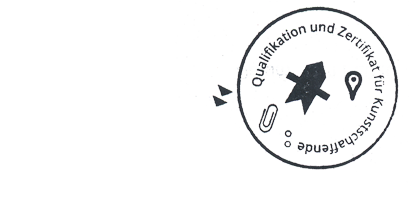
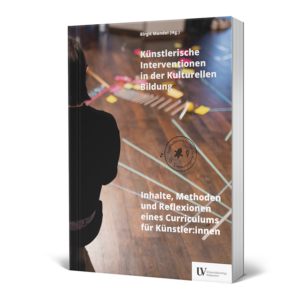
Was kann nur Kunst? Wie können individuelle künstlerische Positionen von Kunstschaffenden in sozialen- und Bildungskontexten produktiv werden? Wie können die Künste dabei ihre Autonomie wahren und zugleich soziale Wirksamkeit entfalten? Was haben freischaffende Künstler:innen davon, wenn sie ihre Arbeit in kulturelle Bildungskontexte erweitern? Was benötigen sie an Unterstützung und Expertise dafür, und wie könnten Weiterbildungen gestaltet sein, um den spezifischen Ansprüchen von Künstler:innen gerecht zu werden?
Die Publikation „Künstlerische Interventionen in der Kulturellen Bildung“ beleuchtet die besonderen Potentiale und Chancen künstlerischer Arbeit für kulturelle Bildungsprozesse. Es werden Leitideen, zentrale Inhalte und methodische Überlegungen einer Weiterbildung für Künstler:innen in der Kulturellen Bildung dargestellt. Autor:innen aus Kunst, Bildung und Wissenschaft formulieren theoretische Hintergründe und praktische Anregungen für Kunstschaffende in der Kulturellen Bildung.
Die Publikation steht hier zum Download zur Verfügung.
Abschluss, Erkenntnisse und Perspektiven des Pilotkurses Künstlerische Interventionen in der Kulturellen Bildung
17.-18. November im Palais Podewil (Klosterstraße 68, 10179 Berlin)
| 17.45 Uhr | Ankunft und Aperitif |
| 18.00 Uhr | Begrüßung Corinna Scheller, Kulturprojekte Berlin Prof. Dr. Birgit Mandel, Institut für Kulturpolitik, Universität Hildesheim |
| 18.10 Uhr | Kurzpräsentation zentraler Erkenntnisse des Pilotkurses Prof. Dr. Birgit Mandel, Institut für Kulturpolitik, Universität Hildesheim |
| 18.30 Uhr | Gesprächsrunde Zukunft vermitteln – Kunstschaffende in der Kulturellen Bildung Moderation: Ulrike Sommer, Wider Sense TraFo gGmbH Mit:
|
| 20.00 Uhr | Präsentation der Abschlusspublikation: Künstlerische Interventionen in der Kulturellen Bildung – Inhalte, Methoden und Reflexion eines Curriculums für Künstler:innen |
| 20.15 Uhr | Buffet und Musik |
| 9.00 Uhr | Ankommen mit Kaffee |
| 9.30 Uhr | Begrüßung Prof. Dr. Birgit Mandel, Institut für Kulturpolitik, Universität Hildesheim |
| 9.45 Uhr | Künstlerische Intervention |
| 10.30 Uhr | Impulsvortrag Kunstschaffende in Bildungssettings Prof. Dr. Nana Eger, Hochschule Merseburg |
| 11.00 Uhr | Vertiefung und Vernetzung in moderierten Tischrunden Zukunft vermitteln: Kunstschaffende in der Kulturellen Bildung
|
| 12.30 Uhr | Abschluss und Ausblick Prof. Dr. Birgit Mandel, Institut für Kulturpolitik, Universität Hildesheim |
| 13.00 Uhr | Mittagsimbiss |
Die Teilnehmer:innenzahl ist begrenzt.
Bei Rückfragen wenden Sie sich bitte an zertifikatskurs [at] uni-hildesheim [dot] de.
An event of the Certificate Course “Artistic Interventions in Cultural Education” at the University of Hildesheim, funded by Stiftung Mercator
Friday, 8th July – Saturday, 9th July 2022 at the University of Hildesheim / Main Campus and Cultural Campus at the Domain of Marienburg
The Symposium addresses artists working in the field of Cultural Education and other societal contexts, scientists and scholars, students and practitioners in the fields of Cultural Education and Cultural Mediation as well as representatives from cultural and education institutions and administrations.
Art bears a particular potential for cultural education processes. Experiencing artistic principles and processes can stimulate inquisitiveness, independent and unconventional thought and action as well as one’s self-perception and that of one’s environment among children, youths and adults. It can also strengthen awareness of self-efficacy and of complex societal contexts. The International Symposium seeks to create access to and discuss knowledge and insights relating to cultural and education policy programmes in various countries, demonstrate a wide range of perspectives on aims, potentials and impacts of cultural interventions in educational contexts and make different artistic concepts and strategies for working in various social and educational contexts experienceable in practice workshops run by artists.
The key objectives and issues of the Symposium:
We are happy to invite you to spend two days with us getting to know and discussing international positions and gaining impulses for your own work from them.
The Symposium will be held in English.
Admission is free of charge.
The number of participants is limited to 200.
Registrations via email are still possible.
If you have any questions, please do not hesitate to contact our team at: symposium [at] uni-hildesheim [dot] de
The first certificate course in Germany “Artistic Interventions in Cultural Education” of the Institute for Cultural Policy at the University of Hildesheim is experiencing very high demand with 456 applications for 30 places. The applicants will be informed promptly about the selection.
Criteria for the selection include experience in cultural mediation and cultural education and a close link between the applicant’s own artistic approach and the development of cultural education projects. In addition, the participants of the pilot course should complement each other as diversely as possible in terms of the artistic genres represented, age, gender, educational and work biographies, regions of origin, migration experience, working methods and target groups.
We would like to thank all applicants and invite you to subscribe to our newsletter with an email to zertifikatskurs [at] uni-hildesheim [dot] de for information on follow-up courses.The first certificate course in Germany “Artistic Interventions in Cultural Education” of the Institute for Cultural Policy at the University of Hildesheim is experiencing very high demand with 456 applications for 30 places. The applicants will be informed promptly about the selection.
Criteria for the selection include experience in cultural mediation and cultural education and a close link between the applicant’s own artistic approach and the development of cultural education projects. In addition, the participants of the pilot course should complement each other as diversely as possible in terms of the artistic genres represented, age, gender, educational and work biographies, regions of origin, migration experience, working methods and target groups.
We would like to thank all applicants and invite you to subscribe to our newsletter with an email to zertifikatskurs [at] uni-hildesheim [dot] de for information on follow-up courses.
We thank all applicants for their interest!
31.01.2021 was the last day of the application phase. From now on, the selection of participants for the pilot course “Artistic Interventions in Cultural Education” begins.
We wish all applicants good luck and will try to inform you about the selection by mid-March 2021!
If you still have questions about the course or simply want to find out more, feel free to visit our FAQs or the recording of the WebTalks with Prof. Dr. Birgit Mandel and Prof. Mona Jas. On Instagram (@kuenstlerische_interventionen) and Facebook (@Künstlerische Interventionen) we keep you up to date with news.
The pilot course “Artistic Intervention in Educational Contexts”, offers 35 artists of various artistic disciplines the opportunity to professionalize for artistic work in education and social contexts.
“Artistic Interventions in educational contexts” is a Germany-wide program, developed by Prof. Dr. Birgit Mandel, department for Cultural Policy at the University of Hildesheim in close exchange with practical organizations of artistic education, to support artists who are experienced in extending their arts in social, educational or political contexts. The training is designed to address each practitioner’s specific level of artistic and cultural experience under the main question: How can artistic expertise be effectively paired with cultural education or other social or political projects and their existing pedagogical and systemic dimensions?
The main assumption is, that the arts have specific potential for cultural education processes, because they can enable a diversity of aesthetic experiences beyond everyday perception and offer utopic space for (irritating) new experiences and perspectives. The concept of artistic intervention focuses on the autonomy of the arts, which have an effect precisely because they do not adapt to common working methods and conventions.
Even though arts practitioners make high-value contributions to the field of cultural education, they are often underappreciated as peers in schools and other institutions. A distinguished course and certification can lead to recognition and future collaborations between arts practitioners and stakeholders in the educational field.
With this project, the Mercator foundation, one of the main sponsor for cultural education programs in Germany, concludes its long-standing commitment to cultural education. The development of the certificate course by the University of Hildesheim incorporates the materials on cultural education developed in previous Mercator projects and cooperates with five “art laboratories” for visual arts, literature, music, dance and theatre initiated by Stiftung Mercator, as well as with the federal association “Cultural Agents for Creative Schools”.
An accompanying handbook and a digital learning platform facilitate the transfer of knowledge. In addition, a website will be developed on which the certified artists can present their specific expertise in the future and can be contacted by schools, for example.
After the pilot phase at the University of Hildesheim and the Federal Academy Wolfenbüttel, the course will also be adopted by organizations in other federal states. The Department for Cultural Policy has a long academic expertise in cultural education, cultural mediation, cultural management and cultural policy. It is situated at the Department of Cultural Studies,Aesthetic Communication and the arts at the University of Hildesheim which stands for teaching and research oriented towards artistic and aesthetic processes.
Learn more about the project partners here.
Immersion Units for Various Artistic Disciplines
As part of the certification course, experts from the Art Labs and the Bundesverband Kulturagent*innen für kreative Schulen e. V. (BVKA) have developed immersion units for various artistic disciplines. Here module topics are supplemented by more in-depth course units in the fields of visual arts, literature, music, theater, contemporary dance and school collaborations. Participating arts practitioners will be able to develop their own cultural education strategies based on their specific artistic practice in direct consultation with highly seasoned, nationally recognized specialists.
Within the framework of Modules 3 (Strategies and Practice-based Formats for Art and Cultural Education), 4 (Cultural Education in School Contexts), 5 (Cultural Institutions as Places of Learning) and 7 (Hand’s-on Training), approximately five hours of immersion units will be offered at the Bundesakademie für Kulturelle Bildung Wolfenbüttel. Upon completing the above-listed modules with the entire group, fellows can then select a specific module topic in an area of their choice (visual arts, literature, music, theater, contemporary dance and school collaborations) for more in-depth study in a small team of maximum six participants.
For the above-listed areas of visual arts, literature, music, theater, contemporary dance and school collaborations, two additional immersion units are offered on site in the respective project-partner setting for a maximum of six participants each. This enables fellows to exchange ideas directly with one another in small groups in the actual work environments of the project partners. Knowledge transfer therefore evolves within the particular setting in conjunction with the professional expertise and experience of project partners. At the same time, participants make new contacts and are able to tap into new networks.
University of Hildesheim Foundation
Education, culture, diversity and digitization – these are the main areas of focus of the University of Hildesheim Foundation, which has around 8,700 students, 90 professors and more than 700 academic and non-academic staff. A variety of disciplines and departments are represented including education and social sciences, cultural studies and aesthetic communication, linguistics and information sciences as well as mathematics, natural sciences, economics and computer science. The University of Hildesheim trains the next generation of scholars in 19 bachelor’s and 25 master’s degree programs.
Institute for Cultural Policy
The Institute for Cultural Policy is part of the arts- and aesthetics-oriented cultural studies programs. Its teaching and research address a broad spectrum of cultural policy approaches – also compared to other institutes internationally – centering on cultural participation and its implementation in concepts and strategies of cultural education, outreach and management. The institute oversees the Master’s Program in Cultural Education.
For more information: https://www.uni-hildesheim.de/fb2/institute/kulturpolitik/
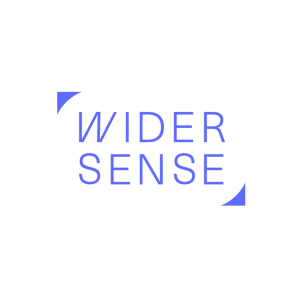 Wider Sense GmbH is a consulting firm that supports companies, foundations and the public sector with customized research & analysis, strategic planning and implementation to effectively drive social change. Since 2019, Wider Sense has successfully advised more than 100 clients, including Stiftung Mercator, the Siemens Stiftung, the Allianz Kulturstiftung, the European Cultural Foundation, the DIPF I Leibniz Institute for Research and Information in Education and the Kulturstiftung der Länder.
Wider Sense GmbH is a consulting firm that supports companies, foundations and the public sector with customized research & analysis, strategic planning and implementation to effectively drive social change. Since 2019, Wider Sense has successfully advised more than 100 clients, including Stiftung Mercator, the Siemens Stiftung, the Allianz Kulturstiftung, the European Cultural Foundation, the DIPF I Leibniz Institute for Research and Information in Education and the Kulturstiftung der Länder.
Our Focus
As part of the Artistic Interventions in Cultural Education project, Wider Sense GmbH will develop and implement strategies and formats that will enable the qualified training and certification offerings to be transferred to other locations. Of particular interest are regional locations participating in Stiftung Mercator’s Kreativpotentiale program. The main target groups are universities and state academies where arts practitioners and cultural producers are educated. Also to be identified are institutions that are interested in adopting the qualified training program developed by the University of Hildesheim and in setting up a comparable certification offering.
Historian and education scholar Ulrike Sommer has served as managing director of Wider Sense TraFo gGmbH since 2020. Among other things, Wider Sense TraFo is involved in Stiftung Mercator’s project Kreativpotentiale im Dialog (Creative Potentials in Dialogue), supports and advises participating regions in anchoring cultural education in the school system. Prior to this, she was managing director of RuhrFutur, a collaboration of leading institutions working to improve the quality of education in the Ruhr region, and for many years held leading positions in various governmental departments for the State of North Rhine-Westphalia.
Thanassis Kalaitzis is a certified systemic coach (DGSF) and project manager responsible for the Kreativpotentiale im Dialog project at Wider Sense TraFo gGmbH. He has been active in project development and implementation of cultural education projects for over ten years, including with Kulturagenten für kreative Schulen and Literaturwerkstatt Berlin.
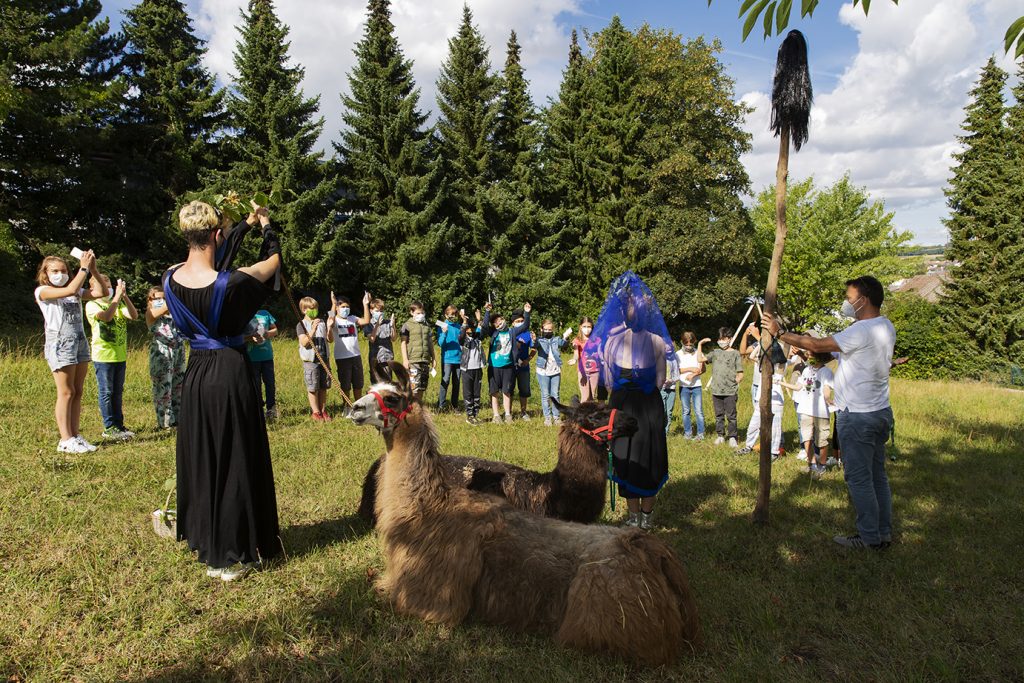
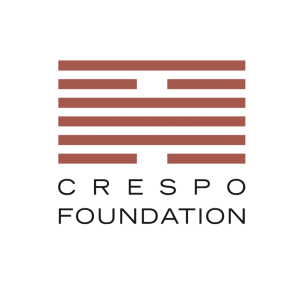 “Making people strong!” is the guiding principle of the Crespo Foundation and our individual areas of work: Family supports young families so that they can have a successful start in life; Accompanying Education supports people during their school education and their careers; Aesthetic Education buttresses the structures enabling children and youngsters to develop their creative potential; Art strengthens young artists in their professional development.
“Making people strong!” is the guiding principle of the Crespo Foundation and our individual areas of work: Family supports young families so that they can have a successful start in life; Accompanying Education supports people during their school education and their careers; Aesthetic Education buttresses the structures enabling children and youngsters to develop their creative potential; Art strengthens young artists in their professional development.
Our Focus
With its Das fliegende Künstlerzimmer (The Flying Artists Space) program, the Crespo Foundation program seeks to support arts practitioners working at the intersection of art and cultural education and to bolster their inter-professional qualifications. The certificate course will benefit greatly from its wealth of expertise. We are also looking forward to the prospect of utilizing Das fliegende Künstlerzimmer as a training venue for the certification course in Hesse, which will bring greater future recognition and visibility to the high level of work conducted by arts practitioners in cultural education.
Laura Kurtz studied culture, theater and orchestra management in Freiburg, Breda (Netherlands) and Frankfurt am Main. Her professional activities include directing several productions of the Wiesbaden Biennale 2016 for the Staatstheater Wiesbaden and serving as the cultural education administrator at Kulturfonds Frankfurt RheinMain, where she headed the Kunstvoll funding program for children and youth projects for four years. As a project administrator at the Crespo Foundation, she is responsible for projects in the field of aesthetic education.
Friederike Schönhuth studied visual communication and sculpture in Offenbach as well as art history and sociology at the Johann Wolfgang Goethe University in Frankfurt am Main. She served as visual arts administrator and curator of the arsviva award for the Kulturkreis der deutschen Wirtschaft im BDI and director of cultural education for the Nantesbuch Foundation. At the Crespo Foundation, she is responsible for strategic planning as well as project conception and implementation in the areas of aesthetic education and art.
For more information: www.crespo-foundation.de und www.fliegendes-kuenstlerzimmer.de
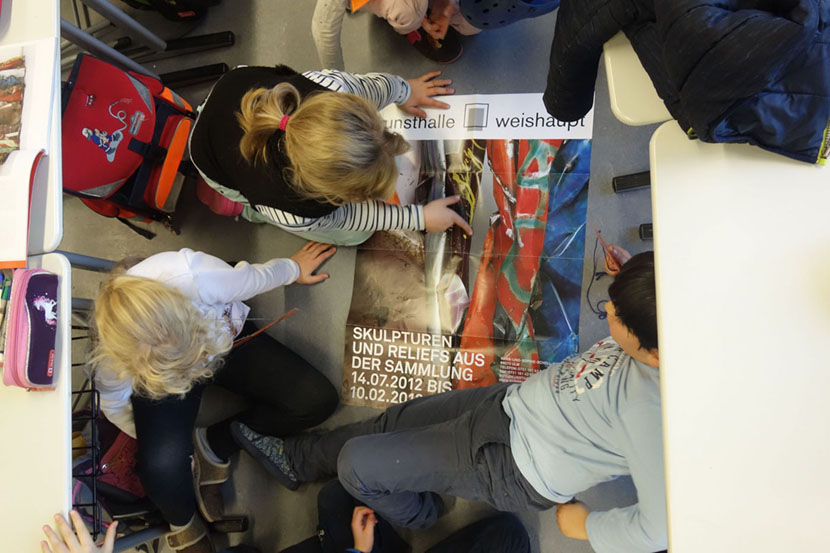
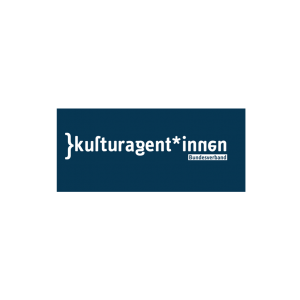 The work of the Bundesverband Kulturagent*innen für kreative Schulen (BVKA) is tied to the longstanding activities of the German Federal Cultural Foundation and the Stiftung Mercator. The regular interdisciplinary exchange has proven to be critical to maintaining the quality of all Kulturagent*innen’s local engagements. The BVKA continues to maintain and develop this exchange through its own projects promoting cultural education so that the still-nascent profession can be established over the long term.
The work of the Bundesverband Kulturagent*innen für kreative Schulen (BVKA) is tied to the longstanding activities of the German Federal Cultural Foundation and the Stiftung Mercator. The regular interdisciplinary exchange has proven to be critical to maintaining the quality of all Kulturagent*innen’s local engagements. The BVKA continues to maintain and develop this exchange through its own projects promoting cultural education so that the still-nascent profession can be established over the long term.
Our Focus
With the certification course, the BVKA supports the development of new formats for the educating and advanced training of practitioners in the field of cultural education. The goal is to ensure and further develop the quality of artistic work with schools. This requires liaisons who can interact between systems on site. The BVKA utilizes the longstanding expertise of the Kulturagent*innen and develops transnational structures for exchange and knowledge preservation.
For more information:https://www.bvka.org/
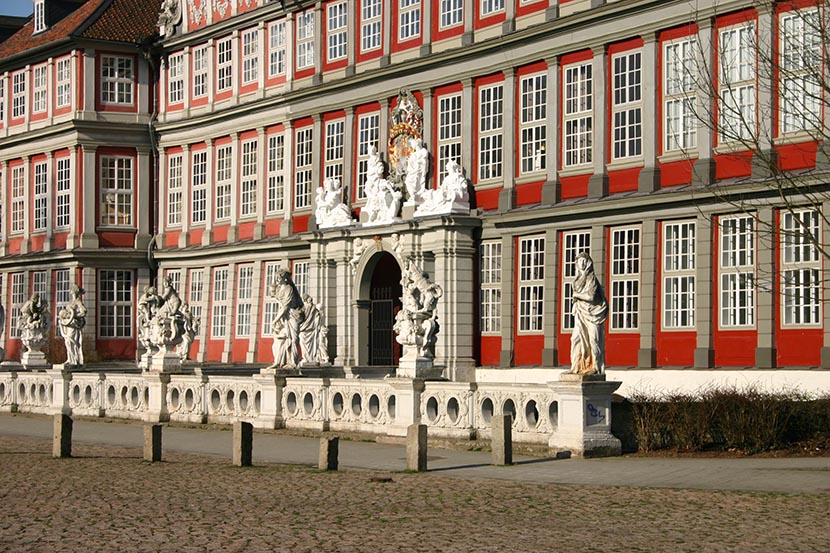
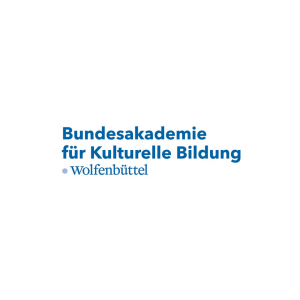
The Bundesakademie Wolfenbüttel is one of the most important providers of hands-on professional training and continuing education in the field of cultural education. It organizes around 180 events a year, including seminars, qualified-training series and conferences in six program areas: visual arts, performing arts, music, literature, museum- and cultural-management, politics and science. The program is aimed at cultural educators and practitioners from around Germany and neighboring countries.
Prof. Dr. Vanessa-Isabelle Reinwand-Weiss studied education, theater and media studies, Romance languages and literature, and philosophy in Erlangen and Bologna and received her doctorate from the University of Erlangen-Nuremberg in 2007. She led a project on early childhood education at the University of Fribourg, is an educator and researcher at the Institute for Cultural Policy at the University of Hildesheim, and is director of the Bundesakademie für Kulturelle Bildung Wolfenbüttel since 2012. She has served on numerous committees and juries in the field of cultural education.
For more information https://www.bundesakademie.de/
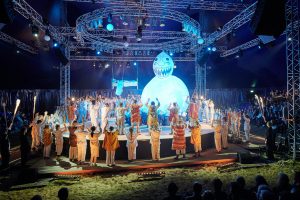
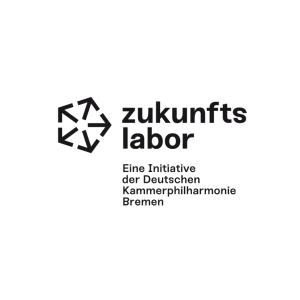 At Future Lab – an initiative of the Deutsche Kammerphilharmonie Bremen –students from the Bremen-Ost secondary school in the socially disadvantaged district of Osterholz-Tenever share their building and their daily lives with world-class musicians. Creating encounters where people from different backgrounds approach one another as equals leads to music-based interactions in projects specifically designed to transcend sociocultural boundaries. Studies have shown that thirteen years of collaborations have increased the individual potential of students, culminating in developments around the district.
At Future Lab – an initiative of the Deutsche Kammerphilharmonie Bremen –students from the Bremen-Ost secondary school in the socially disadvantaged district of Osterholz-Tenever share their building and their daily lives with world-class musicians. Creating encounters where people from different backgrounds approach one another as equals leads to music-based interactions in projects specifically designed to transcend sociocultural boundaries. Studies have shown that thirteen years of collaborations have increased the individual potential of students, culminating in developments around the district.
Art Lab for Music
The Art Lab for Music promotes long-term collaborations between schools and musicians. It demonstrates the opportunities that such partnerships offer and explores a variety of possibilities for encounters and joint activities as well as the necessary conditions for their success. The starting point of a “residential community” comprising school and orchestra can serve as a nexus of learning and a field of experimentation, especially with regard to overarching questions of approach, allocation of roles, communication and application of methods in socio-culturally complex, cooperative contexts.
Our Focus
Central to Future Lab’s identity is that the impacts of cultural education work not be limited to the school and orchestra context. Several outreach projects have already been devoted to conveying the experiences and insights related to the success of music as a means for individual and social development, including the in-depth analysis and educational work of the Art Lab program. As part of the certification course, the work started here will be further developed specifically for arts practitioners and thus to have a lasting impact.
Mona Heiler, project manager of Future Lab, studied cultural studies and aesthetic practice with a focus on music (BA) in Hildesheim and Bursa (Turkey) and cultural education / Médiation Culturelle de l‘Art in Hildesheim and Marseille. Her studies and her professional activities focus on formats for teaching music in public space, cultural institution program offerings for schools and broad sections of the population, as well as participatory projects and collaborative contexts.
For more information:
https://www.zukunftslabor.com/
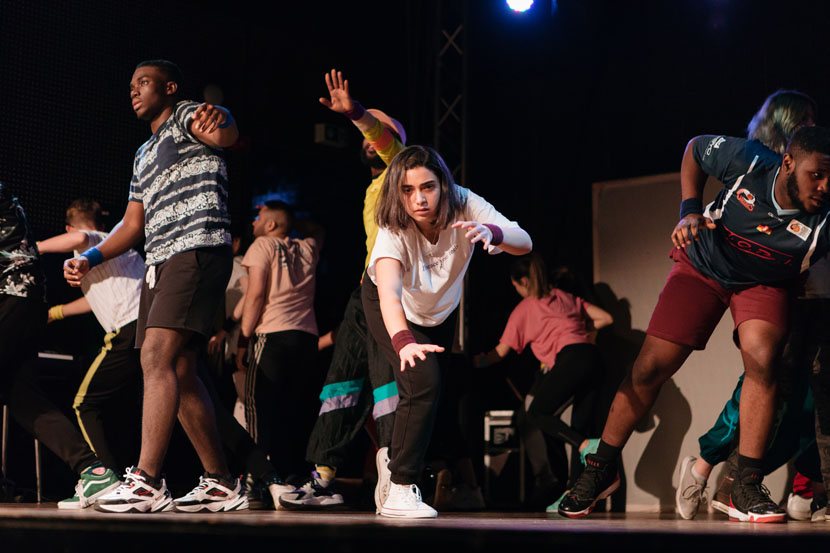
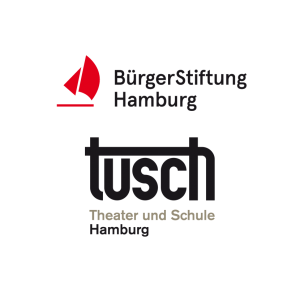 For 20 years, TUSCH has provided schools interested in theater and stages in Hamburg with a common space for conceiving and realizing exciting, innovative and high-quality theater or dance projects. The TUSCH team supports dialogue between students, artists and teachers and also promotes a large network of actors. Fourteen theater-school partnerships are currently working on anchoring theater and cultural development in schools.
For 20 years, TUSCH has provided schools interested in theater and stages in Hamburg with a common space for conceiving and realizing exciting, innovative and high-quality theater or dance projects. The TUSCH team supports dialogue between students, artists and teachers and also promotes a large network of actors. Fourteen theater-school partnerships are currently working on anchoring theater and cultural development in schools.
Art Lab for Theater
As part of the Art Lab for Theater, TUSCH has worked extensively with four selected partnerships to compile, expand and digitize its knowledge of collaboration. Drawing from four sample digital projects, a cross-media textbook and an introduction to the main topic of establishing and developing collaborations, participants will gain deep insight into theater-related processes and working methods as well as many practical tips and helpful input for realizing their own theater projects.
Our Focus
Based on digital materials from the Art Labs, we as a team would like to take an in-depth look at the intersection between real and digital spaces. The unwavering goal is to bring theater to life and make it accessible for students, both in the theater and at school. We want to strengthen collaborations between artists, students and teachers and create a common space for experiencing art where all participants inspire each other.
Julia Eplinius is a cultural studies scholar and certified coach who specializes in promoting partnerships between schools and culture. Her work as director of the Hamburg regional office of the Kulturagent*innen program and the Art Lab for Theater has given her extensive expertise in school-based cultural development. Since 2019 she oversees needs analysis and evaluation at the BürgerStiftung Hamburg.
Michael Müller, theater administrator, studied art and theater education and politics. Since 1991 he has worked in various capacities at the Deutsches Schauspielhaus Hamburg, including as head of PR and education, as artistic coordinator for the Junges Schauspielhaus, and as a leading theater educator and author. He is part of the TUSCH founding team and has been involved in its operations since 2002 and serves as a constant liason between theaters and schools.
Celina Rahman, program director of TUSCH Hamburg, studied English and German studies in Freiburg and teaches theater after completing advanced training. In 2012 she began working with schools in Hamburg, introducing theater educational formats, advanced training offerings and artistic projects there in order to establish and expand on the role of dance in schools and to make it accessible for youth from socially disadvantaged areas in particular.
For more information: https://www.buergerstiftung-hamburg.de/ and https://tusch-hamburg.de/
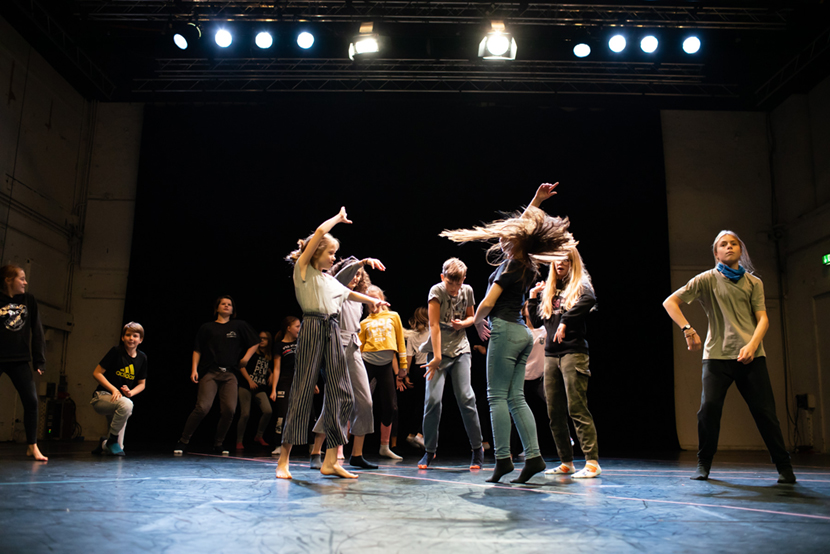
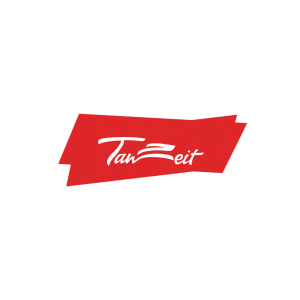 TanzZeit e.V. combines projects from the fields of education, production and research. The association enables students to directly experience “dance in schools” in their classrooms and provides them a stage for their big performance. In addition, TanzZeit presents its own dance productions for young audiences on the Tanzkomplizen (dance accomplices) stage, offers young people space for rehearsals and performances in the Jugendcompany (youth company) and organizes the Club Oval crossover dance battles.
TanzZeit e.V. combines projects from the fields of education, production and research. The association enables students to directly experience “dance in schools” in their classrooms and provides them a stage for their big performance. In addition, TanzZeit presents its own dance productions for young audiences on the Tanzkomplizen (dance accomplices) stage, offers young people space for rehearsals and performances in the Jugendcompany (youth company) and organizes the Club Oval crossover dance battles.
Art Lab for Dance
2015 In 2015, the Art Labs program commissioned TanzZeit as an Art Lab for Dance so that schools could access its extensive dance experience online, thus making it transferrable across Germany. A team of experienced dance educators developed the Calypso web toolbox from TanzZeit’s years of hands-on experience. Here practice-based materials for teaching dance in schools are made freely available.
Our Focus
Quality cultural education can only be achieved through close cooperation between cultural and educational fields. Our years of hands-on experience at the intersection of dance and schools allows us to maintain high standards in this regard. The certification course enables transdisciplinary exchange with partners and collaborative work on innovative forms of education. In particular, interdisciplinary networking approaches with the Stiftung Mercator and the University of Hildesheim have the potential to create broad awareness for cultural education.
Livia Patrizi, born in Naples, is founder and artistic director of TanzZeit e.V. Following her training in dance at the Folkwang University of the Arts in Essen, she worked with Mats Ek, Pina Bausch, Maguy Marin and others. She has been active as a freelance choreographer since 1994. From 2015–19 she headed the Art Lab for Dance, a research and materials-development project organized by MUTIK gGmbH and funded by Stiftung Mercator. This resulted in Calypso, a digital, hands-on tool for teaching dance in schools.
Ann-Kathrin Reimers studied literature, cultural and media studies (BA) at the University of Siegen and theater studies (MA) at the Free University of Berlin. She works as a project manager in the field of contemporary dance and cultural education and at TanzZeit e.V. has overseen the areas of continuing education, the youth company and special dance projects in schools since 2020.
For more information:
https://tanzzeit-berlin.de/
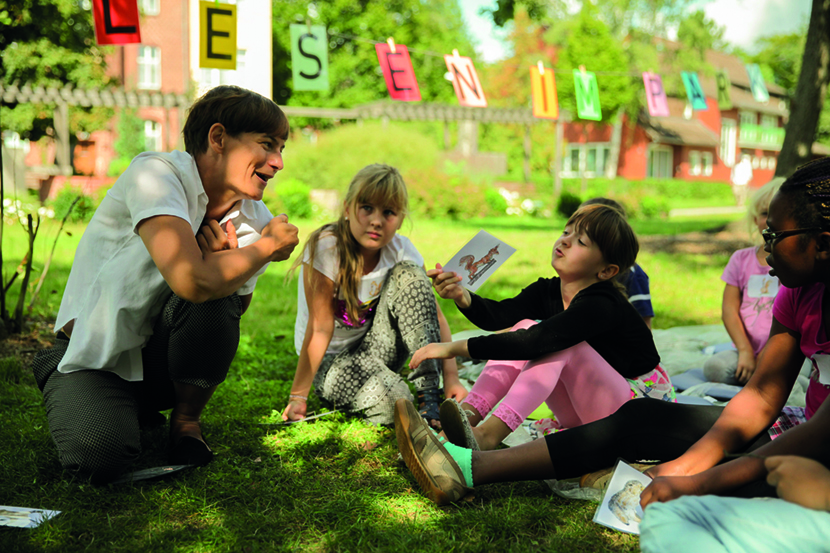
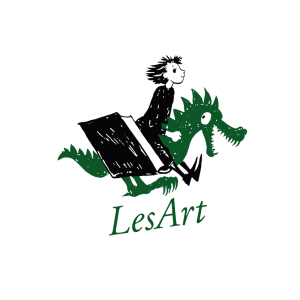 LesArt is a literature house for youth in Berlin and is unique in Europe. It develops inclusive, educational formats for literary events in order to awaken a curiosity for literature and language. Artistic approaches and methods are used to bring images and language to life for the senses in a variety of ways. Through the incorporation of other art disciplines and media, creative models are developed for literary, aesthetic education.
LesArt is a literature house for youth in Berlin and is unique in Europe. It develops inclusive, educational formats for literary events in order to awaken a curiosity for literature and language. Artistic approaches and methods are used to bring images and language to life for the senses in a variety of ways. Through the incorporation of other art disciplines and media, creative models are developed for literary, aesthetic education.
Art Lab for Literature
For the Art Lab for Literature, LesArt developed and broadened event concepts for use in the classroom with schools from Berlin, Bremen and Dresden. How do students develop an enjoyment of literature, language and thinking? LesArt demonstrates how children and young people can be taught to enjoy reading and how to encourage a culture of discussion and debate using various media and artistic approaches.
Our Focus
The certification course invites arts practitioners from a variety of disciplines to build on their qualifications. This creates synergies that can have lasting positive effects on the development of art education formats. These can be discussed, implemented and successfully multiplied within the LesArt network.
The objectives of the course and LesArt are identical: to guide and encourage children and teens to approach life with an open mind and to create an awareness of their own strengths.
Kathrin Buchmann holds a degree in speech science and is program director at LesArt, the Berlin center for children’s and youth literature. Her work focuses on fostering an appreciation for literature, reading and language, developing diverse programs for literary and aesthetic education, teaching children’s and youth literature to children, teens and adults – both analogue and digital –, collaborating with institutions in the field of literary and cultural education as well as planning and participation in the Art Lab for Literature project.
Sabine Mähne holds a degree in journalism and was the director of LesArt for 25 years. She currently works for the organizing body as a board member. Her work focuses on international and national collaborative partnerships in the areas of literature and reading promotion, development of concepts for sound and effective aesthetic-literary education as well as planning and participation in the realization of the Art Lab for Literature project.
For more information: https://www.lesart.org
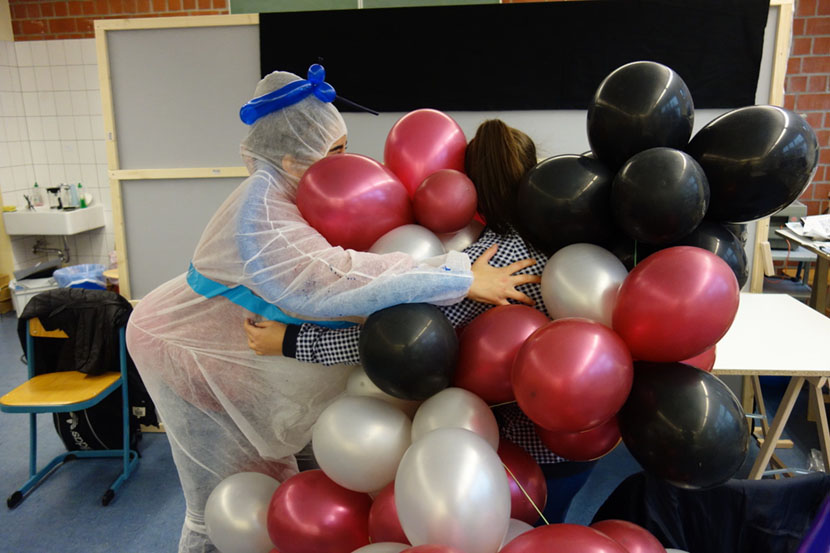
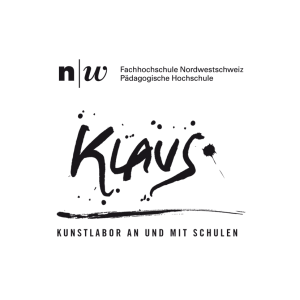
The Department of Teaching Education in Art and Design at the PH FHNW offers practice- and research-based teacher training and continuing education in the teaching of art. In collaboration with artist Magdalena von Rudy, the Art Lab at and with Schools (KLAUS) focuses on the link between art and teaching in order to better improve the quality of art instruction in schools. Particular importance is given to collaborations with arts practitioners who augment the course materials.
Art Lab at and with Schools
The Art Lab at and with Schools (KLAUS) focuses on the link between art and education in order to better improve the quality of arts instruction in schools. Particular importance is given to collaborations with arts practitioners who augment the course materials. An offspring of various art labs created by MUTIK gGmbH, KLAUS developed educational materials for arts instruction in schools from 2015–18. Artists worked in three studios at a secondary school and an academic high school, as well as at a middle school without studios. Independent studio work and art projects were conducted within the framework of instruction-based, artistic offerings in interdisciplinary collaborations with teaching staff. Researchers accompanied the project in order to best understand its impacts from a variety of perspectives. The goal is to improve cooperation between artists and educators and the quality of artistic education.
Our Focus
Art education must start with educators and arts practitioners at schools and with their collaborations. Participation in art and culture cannot end with subject-specific coursework but also requires extracurricular projects, activities and interdisciplinary work. Artistic and aesthetic experiences must be directed toward the lives of children and young people and initiated through teaching methodologies. Our focus is on understanding how best to achieve this by working together with arts practitioners and developing individual, hands-on projects.
Magdalena von Rudy is an independent visual artist and has years of experience working in arts education in schools. Her artwork is regularly exhibited in Germany and abroad. Prof. Dr. Nicole Berner is an educator and researcher in the fields of creativity and quality of instruction and heads the Department of Teacher Education in Art and Design at the School of Education at the University of Applied Sciences and Arts Northwestern Switzerland. Both worked together at KLAUS from 2015–18, where they shared the goal of bringing art and education together on equal footing as well as a continued commitment to spreading their knowledge and experiences.
For more information: https://kunstlabore.de/kunst/
Train-the-Trainer Module
This immersive, train-the-trainer module provides participants the basics for teaching the skills learned during the certification course as a lecturer. Critical teaching concepts will be tested based on devising and implementing qualified training modules for teachers or arts practitioners.
Central questions
How can I reliably and effectively convey the insights and experiences I’ve gained to other artists?
How can this knowledge transfer be effectuated independently of a particular artist’s personality?Train-the-Trainer Module
This immersive, train-the-trainer module provides participants the basics for teaching the skills learned during the certification course as a lecturer. Critical teaching concepts will be tested based on devising and implementing qualified training modules for teachers or arts practitioners.
Central questions
How can I reliably and effectively convey the insights and experiences I’ve gained to other artists?
How can this knowledge transfer be effectuated independently of a particular artist’s personality?
Hand’s-on Training
This module guides fellows during their practice-based projects. The focus of the collaborative work ranges from concept development and implementation, to reflecting on and evaluating the projects, to professional documentation.
Central questions
How can the insights and new aesthetic experiences gained in the course be used as examples/models when implementing cultural education projects against the background of one’s own artistic practice? What basic conditions are necessary in order to provide criteria-based, qualified feedback on cultural education projects?
Cultural Institutions as Places of Learning
This module examines the conditions, aims, concepts and formats of art and cultural education in cultural institutions such as museums, theaters and concert halls. How can arts practitioners effectively contribute to often inflexible and hierarchical institutions while utilizing existing infrastructures and resources? How can they help ensure that cultural education and mediation projects become the engine for institutional transformation processes that facilitate greater diversity?
Central questions
How do I effectively position my artistic and cultural work with relevant stakeholders?
Which management tools and knowledge of formal parameters are indispensable for the success of a project and cultural education work as an artist? How can management be understood as a design task?
How can tasks such as PR, writing proposals or developing project plans be used for one’s own artistic work?
Cultural Management for Arts Practitioners in Cultural Education
When arts practitioners undertake cooperative formats in cultural education and mediation work, they consistently have to negotiate the underlying conditions of often unfamiliar systems. This module examines cultural-management strategies and methods for approaching project management, financing, marketing, PR and audience development in the area of arts- and culture-based project work.
Central questions
How do I effectively position my artistic and cultural work with relevant stakeholders?
Which management tools and knowledge of formal parameters are indispensable for the success of a project and cultural education work as an artist? How can management be understood as a design task?
How can tasks such as PR, writing proposals or developing project plans be used for one’s own artistic work?
Cultural Education in School Contexts
What makes school a locus of culture? This module will analyze the living environments of children and teens as well as the defining features of schools. Starting from an examination of their own school experiences, participants will reflect on the role of arts practitioners as external project members as well as the question to what extent can one’s own practice within art projects be used to effect change in “school.” This module focuses specifically on how to create effective partnerships under systemic school conditions.
Central questions
How do your own school experiences shape your view of the potential usefulness of cultural education in schools?
What possibilities does the school context offer for one’s own artistic research?
What added benefit does artistic work offer the school system?
What must be understood about the basic operating parameters of schools in order to work in school contexts effectively?
How can arts practitioners choreograph how students interact with them, one another and with art?Cultural Education in School Contexts
What makes school a locus of culture? This module will analyze the living environments of children and teens as well as the defining features of schools. Starting from an examination of their own school experiences, participants will reflect on the role of arts practitioners as external project members as well as the question to what extent can one’s own practice within art projects be used to effect change in “school.” This module focuses specifically on how to create effective partnerships under systemic school conditions.
Central questions
How do your own school experiences shape your view of the potential usefulness of cultural education in schools?
What possibilities does the school context offer for one’s own artistic research?
What added benefit does artistic work offer the school system?
What must be understood about the basic operating parameters of schools in order to work in school contexts effectively?
How can arts practitioners choreograph how students interact with them, one another and with art?
Strategies and Practice-based Formats for Art and Cultural Education
Methods and approaches to teaching cultural education and artistic-based projects are the focus of this module. Examined will be the challenges of cultural educational projects in both rural areas as well as digital space. Practice-based cultural education methods and formats from various disciplines—theater education, dance education, art education and museum education, music education and concert education, film education, literature education and media education—will be presented and analyzed together for their potential relevance for aesthetic cultural education. It will then be examined how the respective contexts and participants can impact or influence educational processes and how to take these aspects into account.
Central questions
Which cultural education methods are used with the various disciplines? How do the various disciplines differ from one another?
What are the differences in working with different age groups? What are the differences between urban and rural areas?
In what ways can digital processes enrich forms of cultural education work?
How can your own concepts of working artistically be translated into formats for working with groups?
How can overarching artistic methods and insights from the history of art and knowledge inspire new formats in cultural education?
Strategies and Practice-based Formats for Art and Cultural Education
Methods and approaches to teaching cultural education and artistic-based projects are the focus of this module. Examined will be the challenges of cultural educational projects in both rural areas as well as digital space. Practice-based cultural education methods and formats from various disciplines—theater education, dance education, art education and museum education, music education and concert education, film education, literature education and media education—will be presented and analyzed together for their potential relevance for aesthetic cultural education. It will then be examined how the respective contexts and participants can impact or influence educational processes and how to take these aspects into account.
Central questions
Which cultural education methods are used with the various disciplines? How do the various disciplines differ from one another?
What are the differences in working with different age groups? What are the differences between urban and rural areas?
In what ways can digital processes enrich forms of cultural education work?
How can your own concepts of working artistically be translated into formats for working with groups?
How can overarching artistic methods and insights from the history of art and knowledge inspire new formats in cultural education?
Theoretical Concepts and Discourse
This module will focus on the theoretical concepts and discourse of art and cultural education as well as cultural education from the interdisciplinary perspective of diversity. An examination of international discourse will serve as an important basis here. This will be accompanied by an analysis of significant approaches to cultural and educational policy.
Central questions
Which theoretical approaches and discourses are formative and inspiring for artistic-based work in cultural education?
What level of participation is attainable in artistic-based work with social groups?
To what extent are diversity concepts needed for artistic-based work with social groups in order to achieve participatory equity? Are there educational concepts that can be applied equally to all social groups?
How can artistic projects help mobilize students to participate in lasting ways?Theoretical Concepts and Discourse
This module will focus on the theoretical concepts and discourse of art and cultural education as well as cultural education from the interdisciplinary perspective of diversity. An examination of international discourse will serve as an important basis here. This will be accompanied by an analysis of significant approaches to cultural and educational policy.
Central questions
Which theoretical approaches and discourses are formative and inspiring for artistic-based work in cultural education?
What level of participation is attainable in artistic-based work with social groups?
To what extent are diversity concepts needed for artistic-based work with social groups in order to achieve participatory equity? Are there educational concepts that can be applied equally to all social groups?
How can artistic projects help mobilize students to participate in lasting ways?
The Potential of the Arts in Education
The arts are regarded as essential to learning and education. The first module examines the reasons for this and the extent to which artistic processes can facilitate self-educational processes. In reflecting on art and cultural education, each participant’s artistic approach will be taken into account. Here, one’s own artistic stance and interests are to serve as starting points for cultural education processes. Artistic research aspects will also be discussed. Additionally, the training will introduce fundamental concepts for developing your own practice-based project during the course.
Central questions
What are the benefits if I incorporate cultural education into my own artistic practice?
Is quality a matter of teaching methodology or approach and how can quality criteria be developed for artistic-based work with laypeople? Which concepts from the overall field of cultural education and outreach are useful for contextualizing one’s own practice?
Which international perspectives on artistic work in cultural education can offer ideas for one’s own practice?